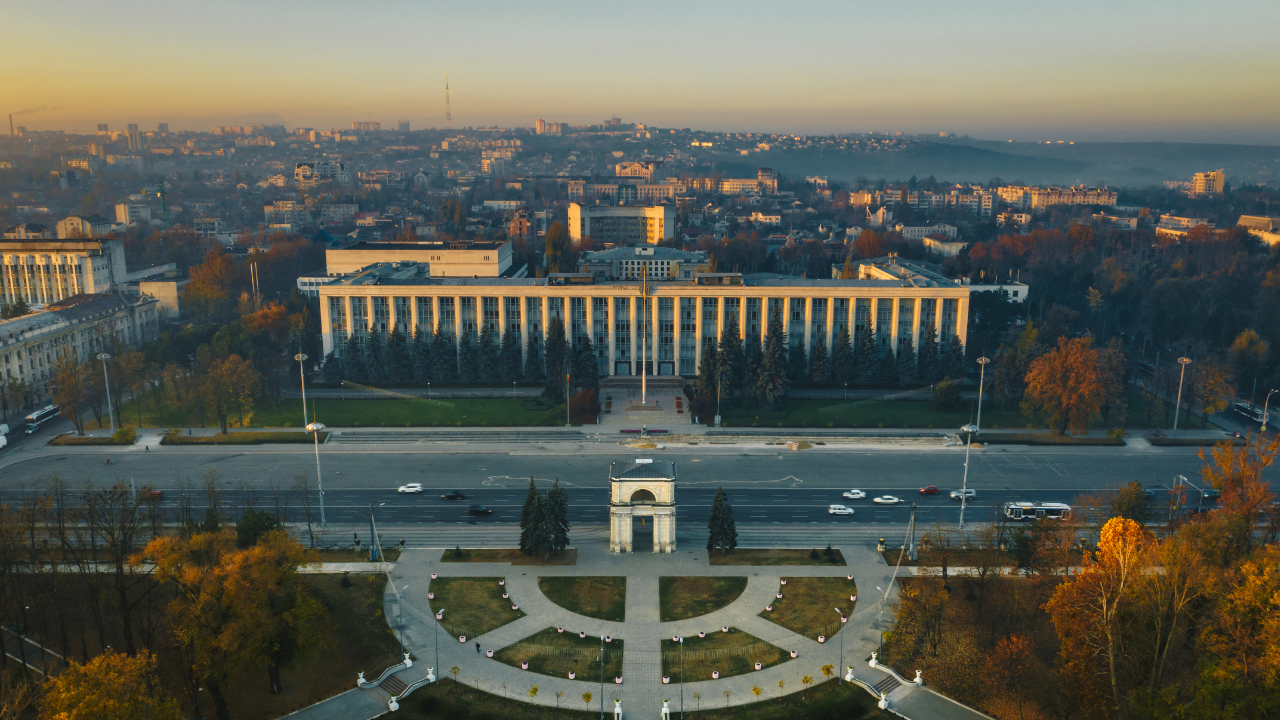Date first published: 30/09/2025
Key sectors: all
Key risks: political stability; civil unrest
Risk development
On 28 September the pro-European Party of Action of Solidarity (PAS) of President Maia Sandu won the parliamentary elections, securing a comfortable majority of 55 seats in the 101-seat parliament. The pro-Russian Patriotic Bloc (BEP) came second with 24.2 per cent, while the Alternative Bloc of former presidential candidate Aleksander Stoianoglo secured third place with around 8 per cent. The vote came amid widespread allegations of Russian interference – on 22 September security forces arrested over 70 individuals allegedly trained in Serbia by Russian intelligence to organise mass riots.
Conversely, BEP accused PAS of electoral fraud – without providing evidence – and called on people to peacefully protest. On 29 September hundreds of people protested in the capital Chisinau, alleging that PAS rigged the vote, specifically highlighting the imbalance of the number of polling stations in the West and Russia. The narrative was echoed by Moscow.
Why it matters
PAS’s strong victory confirmed Moldova’s pro-Western foreign policy orientation, defined by efforts to join the European Union (EU). There is credible evidence of Russia’s influence campaigns – several local and international organisations have published investigations revealing Moscow’s sophisticated disinformation operations. Other investigations exposed Russia’s vote-buying schemes, with civil society monitors claiming that Moscow invested considerable resources into these efforts. Moldova’s intelligence services reported similar conclusions.
However, the election outcome also highlighted the limitations of Russia’s interference campaigns. While PAS traditionally secured the diaspora vote – which accounts for approximately 17 per cent of ballots – it also achieved victory within Moldova, gaining 44.1 per cent compared to 28 per cent for BEP. PAS also performed relatively well in the breakaway region of Transnistria, winning 28 per cent compared to BEP’s 51 per cent. However, voter turnout there was very low, with only around 12,000 people casting ballots out of an estimated population of 360,000.
Background
PAS’s strong victory came despite pre-election polls suggesting the party would fail to secure a majority. At least one opinion poll even indicated that BEP could overtake PAS, although it did not account for diaspora votes.
Moldova’s diaspora traditionally supports pro-European parties, as evidenced by its decisive role in the 2024 referendum on EU aspirations, when it swayed the outcome. In this election, PAS won nearly 79 per cent of diaspora votes, with the exception of Russia, where BEP overwhelmingly prevailed with around 67 per cent. Moldova opened only two polling stations in Russia due to security concerns, compared to 24 stations in the United Kingdom (UK). Around 4,000 people of the roughly 77,000 Moldovans residing in Russia voted – down from 6,000 in 2021 when 17 stations were available – while in the UK more than 27,000 people cast their ballots.
The relatively high turnout among the Western diaspora came despite attempts to obstruct voting, including bomb scares reported at polling stations in Italy, Romania, Spain and the United States (US).
Risk outlook
Ahead of the elections, analysts suggested that Moscow and its proxies were preparing to claim the vote was stolen if PAS won. BEP’s leader, former president Igor Dodon, even declared victory before the official results were announced. After the results, he immediately called for protests on 29 September, accusing PAS of fraud. The demonstration drew only a few hundred participants, who claimed the election was invalid. The relatively low turnout suggests the protests are unlikely to gain momentum or credibly challenge the outcome. However, Russian efforts to undermine the government are likely to continue and could potentially materialise in disorder at demonstrations should security forces fail to prevent it.
Nevertheless, policy continuity is likely to continue, with Moldova expected to step up efforts to eventually access the EU.

